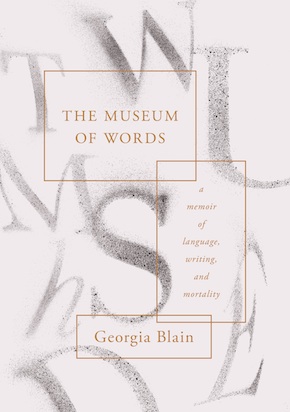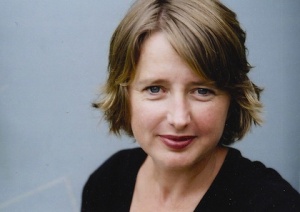Under the sign of eternity
by Mika Provata-Carlone
“A fine book that looks chaos directly in the face and attempts to record it.” Sydney Morning Herald
Until not so long ago, a hand-made quilt of one’s own was one of the most prized possessions a young woman could have: part of her trousseau, a link with her past, a vision of her future. It offered a reflection of who she was, culturally and ancestrally, of who she wished to be, creatively and individually. From the intricately rich 17th and 18th century examples to the highly narratological, more contemporary creations, a quilt was perhaps the ultimate non-verbal expression of the female story: from tasks to attributes, from the sense of a space of belonging to a signature and a personal voice, quilts encapsulated female being, for all their domesticity. They even liberated the sense of a self, the yearning for an ‘I’, as in the Amish quilts, the only individualising gesture allowed to the women of that community.
The Australian writer Georgia Blain was passionate about quilts. Quilting was for her the necessary act of release but also of completion after the final word of a novel had been carefully placed on the page. We are told she would quilt ferociously, manically, inspiredly after each of her books, the hand taking over where the mind had concluded. Her posthumously published The Museum of Words could be said to be her last quilt as well as her final piece of writing, a meticulously created fabric of words, images, instances of life and the feeling of living. Georgia Blain died in 2016 from gioblastoma multiforme, a particularly aggressive type of brain tumour that attacked the part of her brain related to language, creative thought, communication, the ineffable mystery of words. The Museum of Words is in turns a testament, an elegy, a howl of pain and inevitability. It is beautiful and harrowing, resplendent in the joy of being alive, numbing in its proximity to death and mortality.
It chronicles the state of devastation and utter loss when words begin to fail its author, especially when this failure to relate to consciousness and existence, to people and memory, signifies the uncontrolled acceleration of the journey of life until its final terminus. Blain makes that terminus into a point of poignant and meaningful arrival rather than the severance it also inevitably, most tragically, is. We are offered a very rare insight into a failing, yet particularly sharp sense of awareness looking at itself in the twilight of coherence, attachment, hope.
It is a hard account of a life at the end of its allotted time, yet there is never a sense of anger or self-pity. Instead, there is a particularly audacious assessment of value and futility, words and life.”
Blain possesses a disarming and chilling sense of humour, making us look and laugh at what we can barely bring ourselves to conceptualise, such is the intensity of the tragedy, but also the emotive power of her humanity. We often have the feeling that she is watching existence, including her own, from without, through a shut window that is sometimes deceptively clear and sometimes cruelly fogged up. “I began to be able to form simple responses to questions. They were scattered like pebbles, and I had to strain to reach them – my name, where I was. The date was harder to reach, and the Prime Minister[’s name] was impossible.” “Each time I stretched out my fingers to hold on to hope, it was snatched away.” It is a hard account of a life at the end of its allotted time, yet there is never a sense of anger or self-pity, of narcissistic self-indulgence in what she calls, when referring to Knausgård, as “the story of the modern ego, filled with a sense of its own importance.” Instead, there is a particularly audacious assessment of value and futility, words and life. When language and life are put on either end of a scale, it is life, in its full-blooded pain and in its transubstantiation, in its overwhelming mortality and precariousness that wins.
Blain pins up on the message board of existence the cogito and the sum of the Cartesian axiom: for us to look at them hard, feel them deeply, reintegrate them more vitally than we so often do. As the end of her life seems to dissolve the ground under her feet, the horizons she can look at and the seasons she can experience, Blain attains a state of tranquillity and equilibrium that defies time and disease, affirming an eternity, a timelessness on which she cannot, on the level of the cogito, lay claim. Language, Blain reveals time after time, is emotive, relational, experiential and highly experimental, while being vitally traditional; it is malleable, unpredictable, creative, all that we are, until we are not. To speak, read or write we must learn to relate, dream, imagine, desire and feel. Language, in Blain’s narrative quilt, is a miracle and a thing of great power, it is comic, pretentious, a fallacy and the most genuine truth: after learning how to read, “I became a pain in the arse, taking more and more complex words to class, boasting that I could spell them and writing them on the blackboard.” We wield words, therefore we are, or at least begin to be…
Anyone who discovers Blain for the first time will likely experience her writing as an intimate vision, “a door that opened to a secret garden”, a place that will belong to them long after they put her books down. The vision is that of the inherent humanity of language, the necessary meaningfulness of literary communication, the real validity of fiction for a life that stretches beyond the scope of subsistence and extends into true survival. Parallels between Blain and her mother, the writer and broadcaster Anne Deveson, or her mentor, Rosie Scott, will leave the reader shaken and nostalgic at the same time. These were parallel lives of rare connectedness – and harrowing convergences. Through the selection of what patterns and cameos to include, Blain gives us a celebration and a lament, a life of blessings and a carefully edited vision of trauma – physical as well as psychological. Mother and daughter relations, dysfunctional families, mental illness, the female experience in its union with others and in its solitude or isolation, empowerment and modesty are all threads and swatches of her tapestry, vital scraps as she holds on to life.
This is a conscious retreat from the world of the living, which has a breathtaking sense of richness and plenitude and the most total annihilation. The courage to write, the impulse and the compulsion come from a very humbling cherishing of life and its everydayness, its secular sacredness. The poetry with which every gesture of surrender, release, despair is infused, has astonishing clarity and power, and yet it envelops the story and the characters with the softer contours of a hymn. The Museum of Words is undeniably a message from the dead; it shocks us, alarms us, unsettles us. Yet how alive it is, how crucially resonant as a reminder of how words allow us to create and sustain life, to evoke, even resurrect, those no longer alive. “Who would I be without words?”
Her talent is that she is never self-absorbing, the ‘I’ becoming instead an ecumenical metaphor on how our very humanity depends on our ability to relate.”
Blain has said that “my work is very much about myself and the people I know”, and nowhere else perhaps could this close focus on herself be more intense and even relentless. Her talent is that she is never self-absorbing, the ‘I’ becoming instead an ecumenical metaphor on how our very humanity depends on our ability to relate, both in the sense of creating relations and of narrating, to remember and verbalise, namely to live and tell or write stories. To fictionalise a human life is to prevent it from vanishing into nothingness, to ensure that it retains, paradoxically but very essentially, its truth and reality. A memoir is still fiction, in that it has a sense of character, otherness and audience, and for Blain the trace of a letter or word holds the potential of rendering now permanent the trace of a life.
Blain’s Museum of Words is in fact her museum of happiness, where words and all they evoke stand as the exhibits of the simple joy of being alive, as proof that even if short, one did produce a narrative, a story, a mark in time. Blain loved Alice Munro and W.G. Sebald, and hers too is a voice that tried to say the unsayable, articulate the scream in the darkness, of the human soul and of destiny. She leaves behind, in this last corpus of work, very clear, yet sensitive analyses of her own literary process and of the brass tacks of literary writing, of the works of other writers she was marked by, whether classic or contemporary. She offers meditative sketches on sociolinguistics, on the ‘organicity’ of language, both in its beauty and its systemic vitality. Elegiac watercolours on how language is an integral, miraculous part of maternity. She speaks of relationships and human attachment and fragmentation, of the I and Thou relationship between a single human being and the cosmos. Real life, Blain seems to say, is the gossamer thread of words which, by creating meaning, binds us to others and to the world, material and eschatological. The Museum of Words is a very powerful, private essay on the end of being, invested with an unshakeable sense of presence, of fellow-humanity. Also with true verbal beauty and lyrical evocativeness. With her last book Blain proves that one can indeed, and most significantly, “go gently into that good night”.
 Georgia Blain published novels for adults and young adults, essays, short stories, and two memoirs. Her first novel was the bestselling Closed for Winter, which was made into a feature film. Her books have been shortlisted for numerous prizes including the NSW, Victorian, and SA Premiers’ Literary Awards, the ALS Gold Medal, the Stella Prize, and the Nita B. Kibble Award for her memoir Births Deaths Marriages. Her works include The Secret Lives of Men, Too Close to Home, and the YA novel Darkwater. In 2016, she published Between a Wolf and a Dog and the YA novel Special. She passed away in December 2016, aged 51. The Museum of Words is published by Scribe. Read more
Georgia Blain published novels for adults and young adults, essays, short stories, and two memoirs. Her first novel was the bestselling Closed for Winter, which was made into a feature film. Her books have been shortlisted for numerous prizes including the NSW, Victorian, and SA Premiers’ Literary Awards, the ALS Gold Medal, the Stella Prize, and the Nita B. Kibble Award for her memoir Births Deaths Marriages. Her works include The Secret Lives of Men, Too Close to Home, and the YA novel Darkwater. In 2016, she published Between a Wolf and a Dog and the YA novel Special. She passed away in December 2016, aged 51. The Museum of Words is published by Scribe. Read more
Mika Provata-Carlone is an independent scholar, translator, editor and illustrator, and a contributing editor to Bookanista. She has a doctorate from Princeton University and lives and works in London.

